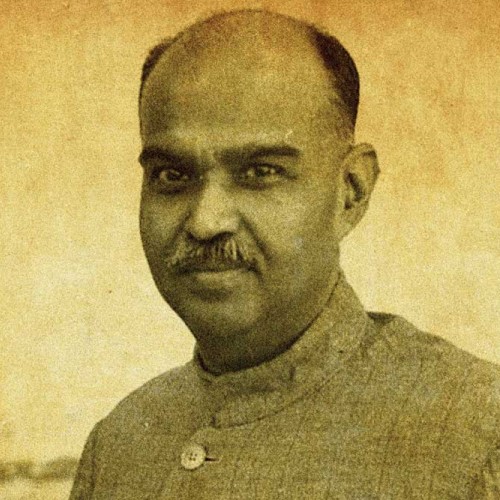Early Life
Syama Prasad Mookerjee was born on 7th July, 1901 in Calcutta in the Bengal Province. His father was a judge and an academic, and Mookerjee followed in his footsteps. He earned a B.A. (Hons) in English, an M.A. in Bengali, and a B.L., all from Calcutta University. In 1926, he was called to the English Bar, and became a qualified barrister.
Upon returning to India, he entered politics. In 1929, he was elected to the Bengal state legislature as a member of the Congress; however, he resigned from the party a year later due to ideological clashes with the leadership.
Mookerjee continued to pursue his academic career alongside his political interests, and became the youngest Vice-Chancellor of Calcutta University in 1934, at the age of 33.
In 1937, Mookerjee became Leader of the Opposition in Bengal after winning elections as an independent candidate. He later became the President of the All-India Hindu Mahasabha, and used his political influence to form a coalition government with the Krishak Praja Party, under which he was appointed Finance Minister of the state.
Role in India’s Independence Movement
Mookerjee resigned from his post in the Bengal coalition government in 1942, after writing to the Governor of the province demanding self-rule for Indians. Subsequently, he took on an important role in the humanitarian efforts surrounding the Bengal famine.
He later emerged as one of the Muslim League’s foremost opponents, and made several passionate speeches against the project of Partition and in support of a unified India.
Contribution to Constitution Making
Mookerjee was elected to the Constituent Assembly from West Bengal on a Congress Party ticket. He intervened in several debates, including those on minorities, regional languages, and the effect of the Muslim League’s absence from the Assembly.
Later Contributions
Post-independence, Mookerjee became a prominent member of the Opposition. In 1951, he founded the Bharatiya Jana Sangh, which won three seats in the following year’s parliamentary election—the first of its kind in Independent India. The party’s goals included economic liberalism and decentralisation, equality of all, Hindi as the national language, and the reunification of India.
During his time in Parliament, Mookerjee was a strong opponent of Article 370. He launched a hunger strike in protest against the Union Government’s policies in the state of Jammu and Kashmir.
In 1953, he attempted to illegally visit the state, resulting in his arrest at the border. Mookerjee died of a heart attack on 23rd June 1953, while in custody of the Jammu & Kashmir police in Srinagar.
Key Writings
Mookerjee was a keen academic who wrote on Indian history and the education system. His notable works include the autobiographical Leaves from a Diary, his treatise on Education in British India, and A Phase of the Indian Struggle, which was banned by the British.
- Mookerjee made a speech about the role of various languages in independent India. He advocated the use of English as a unifying language across the country, as well as its role in opening India up to the knowledge of the West. He also stressed the importance of maintaining respect for regional languages and mother-tongues, and warned that Hindi should not be enforced on the people of regions such as South India, Bengal, or Gujarat.
- He argued that the absence of the Muslim League from the Constituent Assembly should not prevent the members from enacting the Objectives Resolution, which set out the founding principles of the constitution-making process.
- Presidential Speech by Syama Prasad Mookerjee at the All India Civil Liberties Conference (1951)
- Portrait of a Martyr: Biography of Dr. Shyama Prasad Mookerji, Balraj Madhok (1969).
- The Life & Times of Shyama Prasad Mookerjee, Tathagatha Roy (2012).
- Hindu Nationalism and Indian Politics: The Origins and Development of the Bharatiya Jana Sangh, B.D. Graham (1990).
- Dr Syama Prasad Mookerjee and Indian Politics, Prashanto Kumar Chatterji (2010).
- Syama Prasad Mookerjee, the Hindu Dissent and the Partition of Bengal, 1932-1947, Chhanda Chatterjee (2020).

